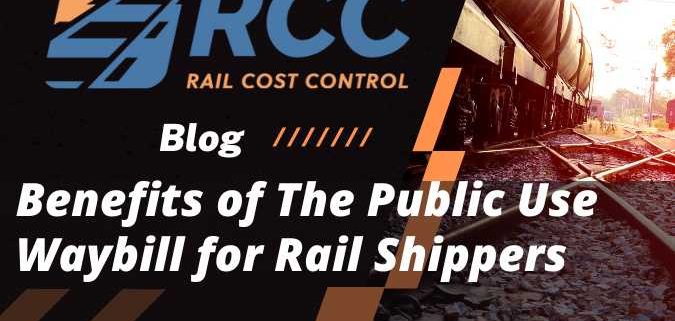Benefits of The Public Use Waybill for Rail Shippers
Maximizing Negotiations: The Benefits of The Public Use Waybill Sample for Rail Shippers
Negotiating with railroads can be a complex process filled with intricacies that rail shippers must navigate to secure favorable rates and terms. One powerful tool that can aid in these negotiations is the use of the Public Use The Public Use Waybill Sample. Understanding how this sample can benefit shippers not only strengthens their position but also streamlines the entire shipping process.
Understanding the Public Use Waybill Sample
Before delving into the benefits, it’s crucial to comprehend what the Public Use Waybill Sample is. A waybill is a document issued by a rail carrier that provides important details such as the consignor, consignee, the shipment’s destination, route, type, and quantity of goods. It’s an essential piece of paper that acts as a receipt for the goods.
The Public Use Waybill Sample is a 20% sample of all movements that touch US soil and is compiled by the Surface Transportation Board. The Public Use Waybill offers valuable insights regarding shipping patterns, pricing models, and volumes, effectively transforming raw data into strategic analysis.
Benefits for Rail Shippers
-
Informed Decision-Making
The Public Use Waybill Sample equips rail shippers with data-driven insights. By analyzing this information, shippers can determine prevalent pricing trends. This understanding enables shippers to make informed choices when selecting routes and carriers to optimize cost-effectiveness and efficiency.
-
Strengthened Negotiation Position
Access to comprehensive traffic data empowers shippers during rate negotiations. By having a clear grasp of existing market rates and transaction volumes reflected in the Public Use Waybill Sample, shippers can counter with data-backed requests for reductions or improved service terms. Knowledge from these samples provides leverage during conversations with railroad representatives.
-
Competitive Benchmarking
The Public Use Waybill Sample allows shippers to compare their current operations against industry standards. By examining data on competitors’ shipping patterns and costs, rail shippers can identify areas where they need improvement or adjust strategies to gain a competitive edge. This benchmarking fosters more assertive negotiation stances and aids in aligning business strategies.
-
Long-term Strategic Planning
Besides facilitating immediate negotiation tactics, the Public Use Waybill Sample offer insights crucial for strategic planning. They help shippers forecast future needs based on historical trends, paving the way for more effective long-term rate agreements and partnership evolutions with railroads.
Conclusion
Public the Public Use Waybill Sample serve as a powerful resource for rail shippers in negotiations with railroads. By offering data-driven insights, they amplify the shipper’s ability to make informed decisions, strengthen bargaining positions, offer competitive benchmarking, identify optimization opportunities, and pave the way for strategic long-term planning. Through effectively utilizing these samples, rail shippers can transform negotiations from mere discussions to strategic, data-supported engagements that yield mutually beneficial outcomes.
Empowered with this information, rail shippers stand a better chance to optimize both pricing and service standards—delivering improved efficiency and profitability in their shipping operations.
How the RCC uses the Public Use Waybill Sample
Rail Cost Control (RCC) leverages the Surface Transportation Board’s Public Use Waybill Sample — a stratified, anonymized snapshot of freight rail movements — to empower shippers in rail-rate negotiations. RCC feeds Waybill data into its proprietary tools, enabling shippers to benchmark existing and proposed rates against anonymized averages and standard deviations for similar commodities and lanes.
For example, RCC might reveal that a shipper’s $4,000 rate for a 450‑mile plastic shipment is significantly above the $2,430 average for similar moves and is above one standard deviation — a powerful argument in pushing for more competitive pricing. By translating large-scale Waybill benchmarks into actionable intelligence, RCC helps identify overpriced lanes and support clients in negotiating or challenging rail rates based on robust, market-based evidence.


